detail profile georges rouquier
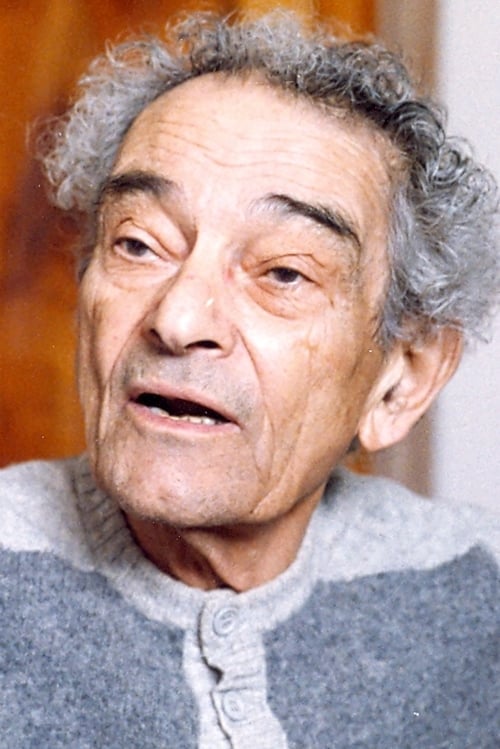
Riwayat Hidup
Georges Rouquier (23 June 1909 – 19 December 1989) was a French film director, screenwriter and actor.
He worked principally on documentary films, and his best-known work is Farrebique (1947) a lyrical evocation of farming life in Aveyron.
Info Pribadi
Peran Yang Di Mainkan Georges Rouquier
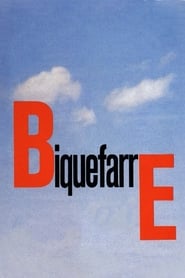 Biquefarre is a small farm in...
Biquefarre is a small farm in...Biquefarre 1984
Biquefarre is a small farm in Aveyron. The changing economics of farming lead Raoul, in late middle age, to decide to sell and move to Toulouse. At least two neighboring farmers want to buy Biquefarre: Lucien and the young Marcel. Behind the scenes, Henri, whose brother is Marcel's father and who is also Lucien's brother-in-law, negotiates with Raoul so that Marcel's father can secretly sweeten Marcel's offer. Will dad and uncle succeed? In the background is the hard daily work of farming: milking cows, harvesting at night, and finding help when a farmer falls ill. Progress brings challenges: polluted water, factory farms, and skyrocketing land prices.
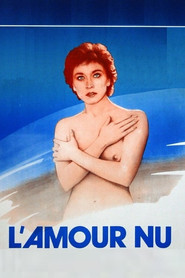 An educated woman with good prospects...
An educated woman with good prospects...L'Amour nu 1981
An educated woman ,with good prospects falls in love with an oceanographer .But breast cancer strikes : will she remain a true woman ,in spite of a mastectomy?
 In this film Georges Rouquier describes...
In this film Georges Rouquier describes...The Farrier 1977
In this film, Georges Rouquier describes the activity of the farrier in the multiplicity of its aspects. But the filmmaker does not limit his remarks to a pure technical description, he does not forget the man nor his family and village environment, nor the history where his life was written at a given moment. The director films Marcel Laforge, a blacksmith living in a small village in the Charentes, Garrat. Shot in one week, the film is a reconstruction; everything has been staged from fragments of multiple realities. This short film is articulated around three themes, sometimes confronted, but often confused: the man, the history and the trade.
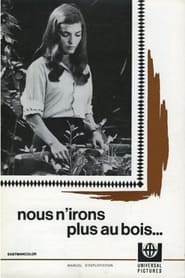 In the spring of 1944 in the...
In the spring of 1944 in the...We Won't Go to the Woods Anymore 1969
In the spring of 1944, in the Woëvre forest of Lorraine, a group of young maquisards takes in four German deserters. led by Saint-Brice is based in the Woevre forest. Lise, a nineteen-year-old girl, is their liaison officer. One evening, four German soldiers turn up as deserters. After a period of doubt, the maquisards agree to integrate them into their group. Lise falls in love with one of the newcomers, Werner, and becomes his mistress. One day, she leaves on a mission with Lucien, and comes across an enemy patrol. The SS shoot Lucien and free Lise. In the camp, people begin to think that the maquis has been betrayed.
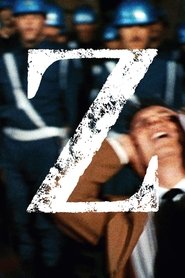 Amid a tense political climate the...
Amid a tense political climate the...Z 1969
Amid a tense political climate, the opposition leader is killed in an apparent accident. When a prosecutor smells a cover-up, witnesses get targeted. A thinly veiled dramatization of the assassination of Greek politician Grigoris Lambrakis and its aftermath, “Z” captures the outrage at the US-backed junta that ruled Greece at the time of its release.
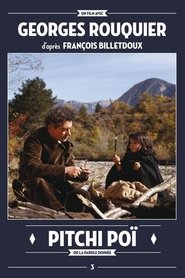 May 1944 in Provence a young Jewish...
May 1944 in Provence a young Jewish...Pitchi-Poï ou La parole donnée 1967
May 1944, in Provence, a young Jewish woman fleeing Nazi persecution, entrusts her three-month-old granddaughter to a stranger, Mathieu, a solitary shepherd who will raise her alone. Once the war is over, he will leave with her, in search of the mother. A research that will last more than twenty years and that will lead them to several European countries.
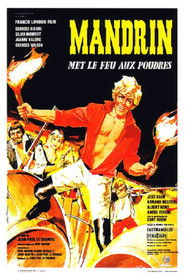 It was the reign of Louis...
It was the reign of Louis...Mandrin 1962
It was the reign of Louis XV and, in 1750, France was at war all the time, and the people, suffocated by taxes, liked their beloved Louis less and less. When the governor of Dauphiné arrived in Saint-Étienne-de-Saint-Geoirs, he had to deal with opponents of the regime who had gathered around cooper Louis Mandrin. Mandrin becomes the vigilante who respects his king, but does not tolerate the oppression of the poor through taxation.
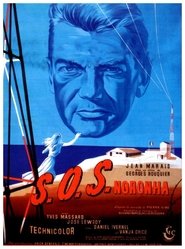 In 1930 on the island of Noronha...
In 1930 on the island of Noronha...S.O.S. Noronha 1957
In 1930, on the island of Noronha in Brazil, the inmates of the penitentiary revolt. Frédéric Coulibaud, head of the aeropostale radio station, and his team-mates Mastic and Froment, try to prevent them from entering the concession where the island's governor and his daughter have taken refuge. They manage to repair the radio so as to follow and guide Mermoz as he attempts to cross the South Atlantic for the 53rd time. The aviator is forced to ditch and is picked up by a boat. Their mission accomplished, Coulibaud and his team boarded a British ship that had come to their rescue.
 A faceless traveller takes a journey...
A faceless traveller takes a journey...Letter from Siberia 1957
A faceless traveller takes a journey through the barren reaches of a Siberia caught between tradition and modernity, imparting his philosophical musings on its people and places, wildlife and culture.
 This is October 1955 The place is...
This is October 1955 The place is...Le Sabotier du Val de Loire 1956
This is October 1955. The place is a village in Loire-Atlantique, La Chapelle-Basse-Mer, where an old clog-maker works and lives with his wife and their adopted son. The clog-maker's meticulous craft is described with love and close attention to detail. On the other hand, forthcoming death pervades the quiet everyday life of the elderly couple.
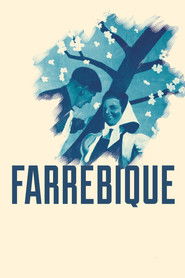 Farrebique the first featurelength effort of...
Farrebique the first featurelength effort of...Farrebique, or the Four Seasons 1947
Farrebique, the first feature-length effort of French documentary filmmaker Georges Rouqier, is widely regarded as his finest film. Rouqier concentrates on a single French farm family, following them through the four seasons. As in the works of Robert Flaherty, the human characters and the land surrounding them are "one", and Rouqier never misses an opportunity to parallel their lives with the eons-old phases of nature. The final symbolic images of Spring, achieved through time-lapse photography, are almost unbearably beautiful. The winner of several festival awards, Farrebique nonetheless did not immediately result in an outpouring of financing for Rouqier's follow-up films (this was a common problem in the financially strapped French film industry of the 1940s). Perhaps as a result, Rouqier did not make his sequel, Biquefarre (filmed in the same region, with some of the same "actors"), until 1983.
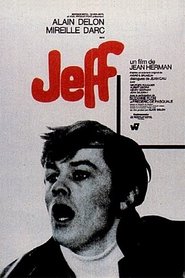 Jeff is a gangster whos disappeared...
Jeff is a gangster whos disappeared...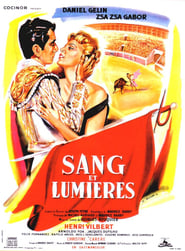 Love in a Hot Climate Spanish...
Love in a Hot Climate Spanish...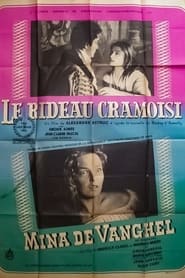 A romantic German girl is brought...
A romantic German girl is brought...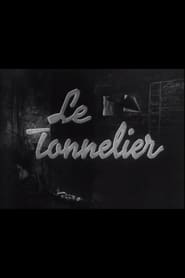 A short documentary about the barrel...
A short documentary about the barrel...